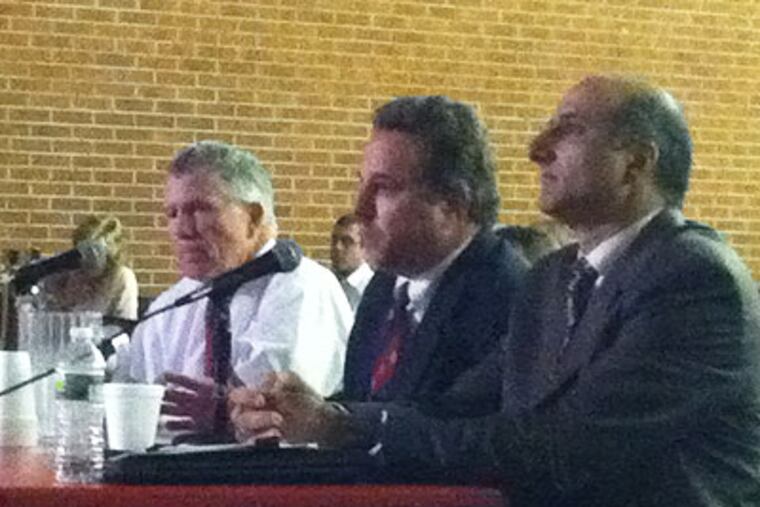Hearing in Neshaminy blasts teacher strikes
Pennsylvania must prohibit teacher strikes to ensure that children get the education they deserve and school districts are able to negotiate affordable contracts, lawmakers, school board officials, and parents told the state House Education Committee on Thursday.

Pennsylvania must prohibit teacher strikes to ensure that children get the education they deserve and school districts are able to negotiate affordable contracts, lawmakers, school board officials, and parents told the state House Education Committee on Thursday.
Meeting at Neshaminy High School in Langhorne, the committee conducted its first hearing of House Bill 1369, which would ban teacher strikes and school lockouts, fine teachers who strike, and add to the current mediation system by requiring negotiating sessions and public meetings.
"With teacher strikes, there are no winners," said Committee Chairman Paul Clymer (R., Bucks), a cosponsor of the bill. "There are nasty strikes and no winners."
Rep. Todd Rock (R., Frankin), the lead sponsor, said 37 states, including New Jersey, ban teacher strikes. He labeled Pennsylvania the "strike capital of the nation" with 94 in the past decade.
"Students are treated as pawns and bargaining chips," Rock said. "This bill would restore every student's legal right to an uninterrupted education."
The hearing, attended by 11 witnesses and about 50 residents, was conducted in Neshaminy because the district's long and acrimonious contract impasse makes it "ground zero" for the issue, said Rep. Frank Farry (R., Bucks).
"No child's education should be disrupted by a strike or work-to-contract action," said Farry, a cosponsor of the bill and a Neshaminy resident. "Students should not be penalized because adults are not able to agree on a labor contract."
Taxpayers are moving out of the district "because the level of property taxes and burdens it puts on our seniors and working families is unsustainable," Farry said. "The labor costs at Neshaminy School District is the main driver of these property taxes."
The strike ban and financial penalties in the bill would give teachers an incentive to reach an agreement, witnesses said. Teachers do not lose money during a strike, because ultimately they work the state-mandated 180-day school year, the witnesses said.
"It's more of a vacation reallocation," said Neshaminy School Board President Richie Webb.
The bill's financial penalties would include a $5,000 individual fine per incident for inciting a strike, and striking teachers would lose two days of pay for each one they are out. There also would be no retroactive pay once a contract expires.
The bill also would require four negotiating sessions a month and a public meeting every six weeks once nonbinding arbitration fails. Based on the bill's timetable, those meetings would start in June of the year the contract expires.
"The bill forces both sides to negotiate, it doesn't force a settlement," Rock said. "As a former school board member, if we were forced to attend four negotiating sessions a month and face the public every six weeks, we'd come to an agreement."
Most of the witnesses supported the bill. But Jerry Oleksiak, vice president-elect of the Pennsylvania State Education Association, said, "No strikes have been proven to impact student achievement. None of them. Funding cuts and significant reductions in programs proven to work for student learning, however, will almost definitely have a negative impact on student achievement."
The PSEA represents 193,000 teachers and support staffers, but not Neshaminy teachers, who belong to the American Federation of Teachers. The AFT did not send a representative to testify, and the Neshaminy Federation of Teachers did not respond to its invitation, Clymer said.
Pa. Rep. Frank Farry (R., Bucks) discusses the bill that would ban teacher strikes in Pennsylvania at www.philly.com/strikeban EndText